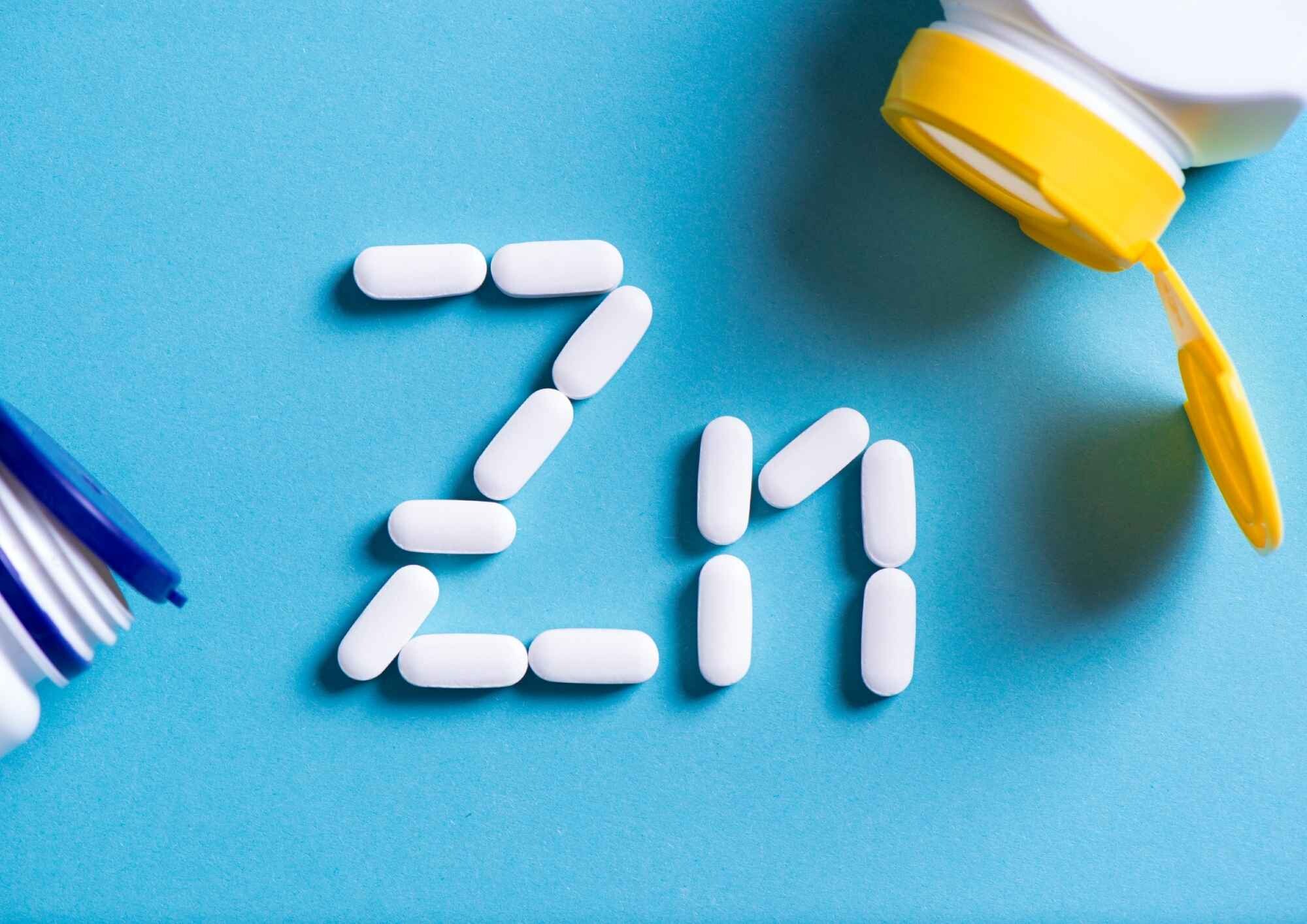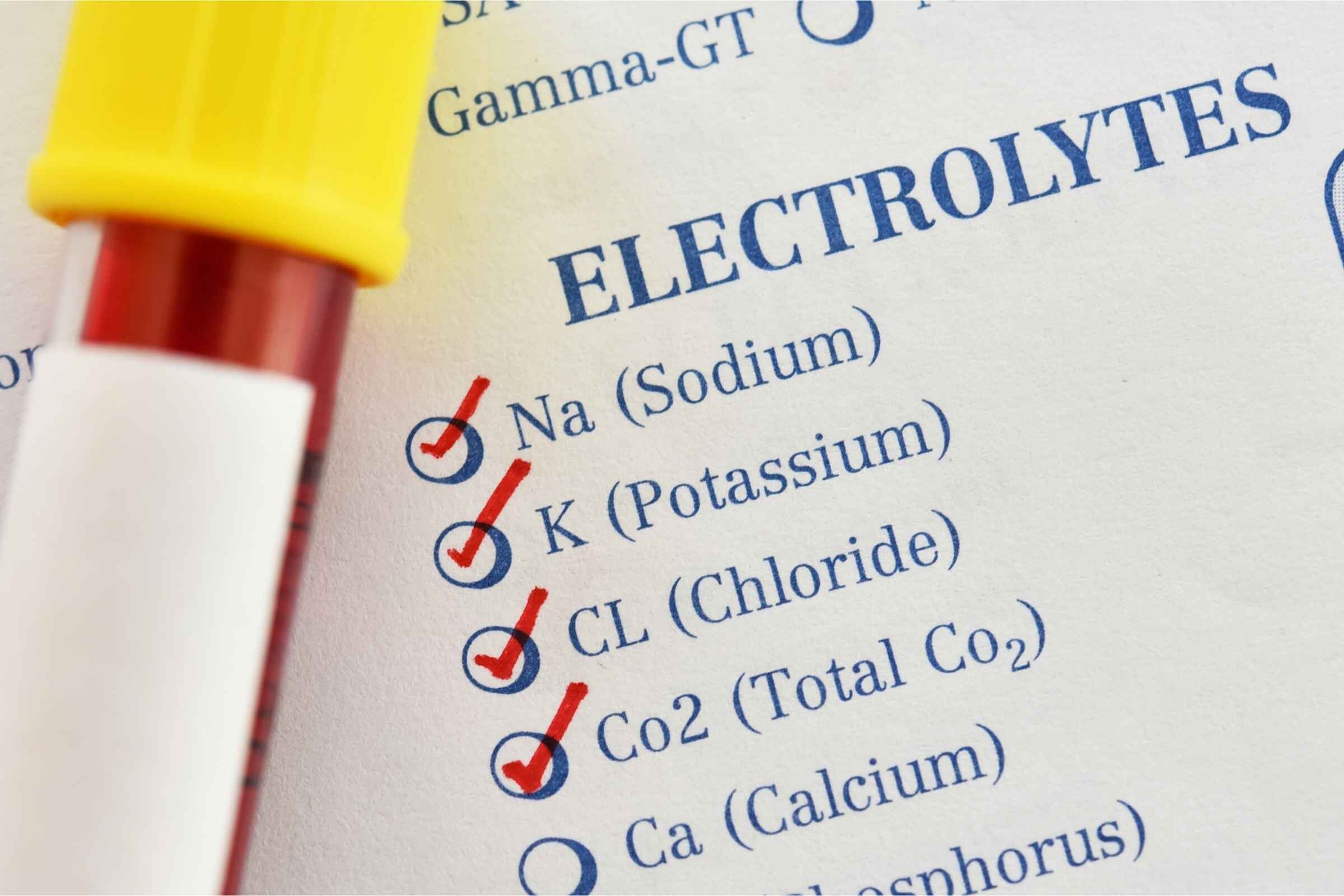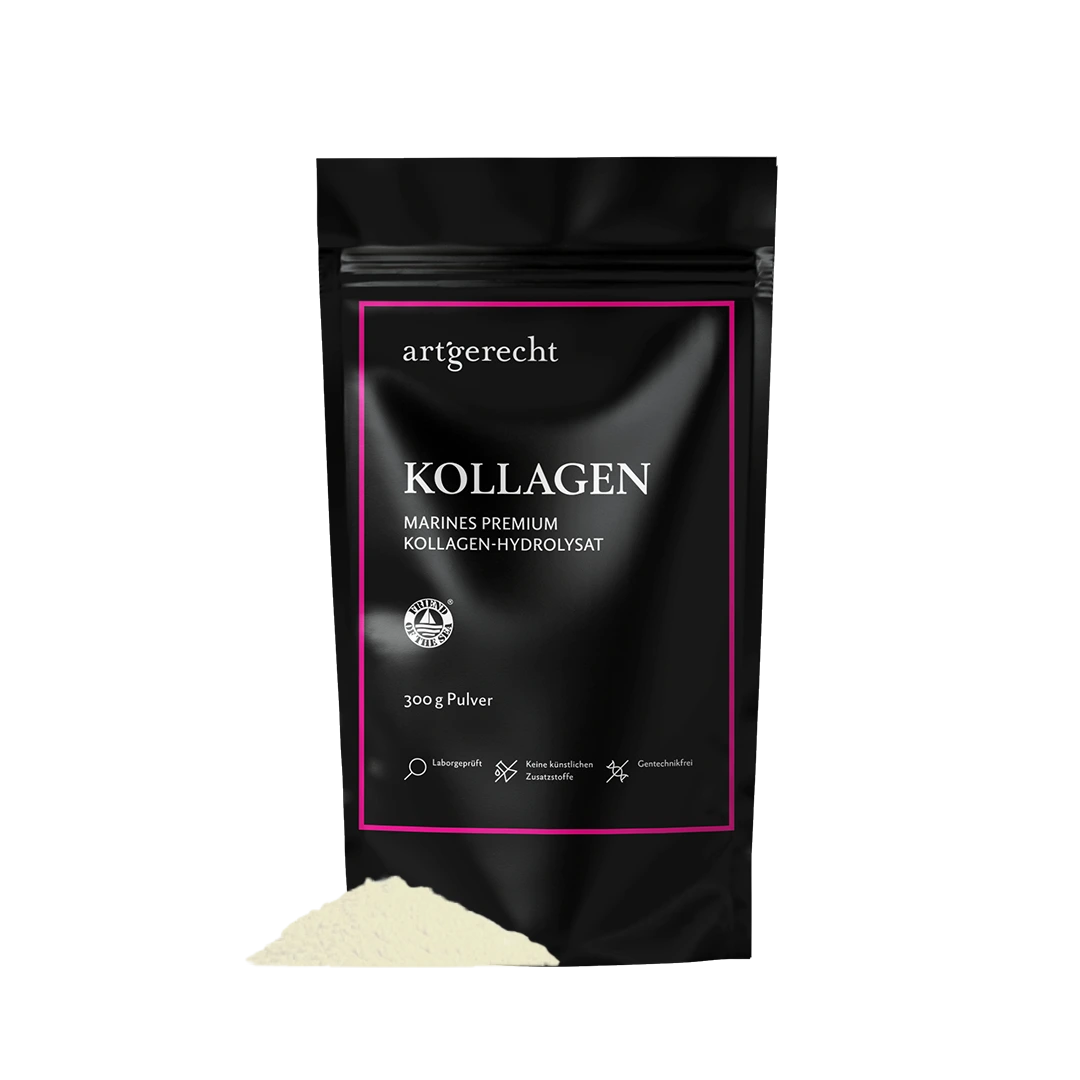The well-known statement “You are what you eat” actually sums up the topic of digestion quite well. But there is more to it than that, because our digestion and the well-being associated with it are a complex issue. In addition to our diet, a number of other factors play an important role. Learn here what you should pay attention to
.What makes a good digestion?
What constitutes healthy or good digestion is undoubtedly a personal assessment. And most of us have at least some idea of what it can be like to have digestive problems - be it constipation, bloating or diarrhea. The smell and color of our stool are key factors in determining how well our digestion is working. However, it is not only what comes out at the end, but above all what goes into the body beforehand that plays a decisive role. Food in the form of macronutrients, such as fats, carbohydrates and proteins, is important for energy production. Just as important, however, is the supply of micronutrients such as vitamins, minerals and trace elements, which are necessary for all metabolic processes in the body. In this respect, we need to assess both our food and our stool as well as our individual conditions (e.g. the cause of bloating, diarrhea or constipation) when we talk about our digestion.
An adequate supply of nutrients and fluids is a central component of a functioning digestive system. This is because our body needs carbohydrates (especially fiber) and fats for energy production and building blocks (aminosäuren), vitamins, minerals and trace elements in order to function healthily. The cause of „qualitative“ malnutrition, which often affects older people[1], is an insufficient supply of micro and macronutrients.
From an evolutionary perspective, the interaction between the different sections of the gastrointestinal tract, including all its digestive functions, hormones and enzymes, is deeply rooted in human genetics. Food, which we humans have been eating for hundreds of thousands of years [2], enables food to be broken down and absorbed in the intestine. It was very important for our ancestors that this process worked well in order to ensure a sufficient supply of nutrients even in times of food shortages. Of course, good digestion is no less important for us today. However, the challenge for digestion and our immune system lies more in nutritional oversupply, high meal frequencies, high calorie density and unhealthy food combinations [3]. These are often the cause of various types of stomach and intestinal complaints such as bloating, diarrhea or constipation.
How our digestion works
Our digestive process begins with food intake in the mouth. There, the food is mechanically broken down by chewing and mixed with saliva. This is where an enzyme (amylase) is released to break down long-chain carbohydrates (bulking agents). The digestive pathway continues via the esophagus into the stomach. Now it becomes acidic - and that's a good thing. Because the low pH value of the gastric acid ensures the destruction of pathogenic germs, the decomposition of the chyme and the denaturation of proteins [4]. In addition, there are precursors of enzymes that are activated by the stomach acid and are responsible for the breakdown of proteins. In the small intestine, bile fluid and pancreatic secretion now ensure that free fatty acids are converted from fat, and that free fatty acids are converted from fat.free fatty acids, peptides (shorter proteins) and free amino acids from proteins and simple sugars (monosaccharides) from long-chain carbohydrates. Digestion takes several hours in total until the smaller building blocks can ultimately be absorbed via the intestinal wall.
The balance is crucial
The amount we eat per meal (calorie density) and its composition, i.e. the percentage distribution of fat, protein and carbohydrate content, influence our digestion. Via various receptors (sensors), the body is able to, for example request the production of more bile fluid and enzymes for breakdown“. This works, among other things, by stretching the stomach. The more the stomach is stretched, the more secretion is produced. However, the control also runs via the enteric nervous system, i.e. the nervous system of the gastrointestinal tract, as well as via our hormones.
However, excessive amounts of food and frequent meals may not be broken down sufficiently and are stressful for the intestines and pancreas [5]. Too much protein, for example in the form of a protein shake, can also be difficult to digest. The result: If there is insufficient breakdown, the nutrients can only be absorbed through the intestinal wall to a limited extent. This results in long-lasting fermentation processes in our intestines, as the bacteria there try to metabolize these components. This can lead to strong-smelling flatulence, constipation, diarrhea and food residue in the stool and can even cause inflammatory reactions or ulcers [6].
.You are what you eat … But is it healthy too?
Of course, the food we consume has a significant influence on digestion: Carbohydrates in the form of sugar or food additives that interact with the gut microbiome, the gut and our entire organism lead to increased inflammatory activity. High amounts of fat are the cause of increased activity of the immune system, which is known as postprandial inflammatory response (inflammatory response after eating).[7] This lasts longer, especially in combination with frequent and high-fat meals. Ultimately, an unbalanced diet with lots of saturated fats, sugar, sweeteners and red meat can lead to an imbalance of microorganisms in the gut (dysbiosis) and thus also to constipation or diarrhea.[8]
Our tips – What can you do for good digestion?
It is essentially the right or wrong diet that influences our digestion. In this respect, a healthy and for us humans species-appropriate, varied nutrition can make a major contribution to healthy digestion. Here are some tips that are easy to implement:
- A species-appropriate and varied diet: Incorporate as much healthy plant-based fiber as possible into your diet and try to eat as many different foods per week (recommendation: At least 30 different plant species [9].) A food is understood as a „natural“ product, such as vegetables and fruit – but also different types of apples. But not different pizzas.
- Timing and frequency: Our biorhythm determines the body's genetically programmed metabolic situation, which is beneficial for both good digestion and our health. Another tip: it should only be eaten during the active time of the biorhythm (approx. from 07:00 – 19:00). Ideally, you should not eat more than 2-3 meals per day.[10]
How can I additionally support good digestion?
In addition to a healthy, balanced and fiber-rich diet, we can do even more for healthy digestion. In particular, reducing stress or dealing with it better can make a big difference. Here are our best tips:
- Regular exercise and sport have a positive effect on our stress levels as well as on the gut and digestion.[11] Exercise can also help prevent constipation and relieve bloating.
- Include exercise breaks at work. It would be best to move intensively for one minute every 60 minutes, e.g. by climbing stairs at a brisk pace (you should be out of breath). These sitting breaks are not only good for digestion, but also reduce the risk of other conditions such as cardiovascular disease.[12]
- Relaxation techniques such as meditation, mindfulness training, yoga or forest bathing are also beneficial. This can be attributed to the training of a specific part of the nervous system, namely the parasympathetic nervous system. The parasympathetic nervous system also influences our digestion through the direct connection between the brain and intestines.[13]
- Drinking (primarily water) is very important for digestion. The recommendation is to drink about two liters of water every day. However, the drinking frequency – i.e. how many times a day we should drink, is currently under discussion. A lower drinking frequency is associated with positive effects on health.[14]
What if I lack the necessary discipline?
For all the tips listed above, we need a certain amount of discipline and initiative. We don't always manage to organize our everyday lives in such a way that we can completely avoid stress or get enough exercise. And we can't always make friends with the optimal diet either - we are sometimes too hungry for unhealthy fiber, such as pizza or burgers. But the basic rule is: a change is better than none and the smallest change often produces the greatest success.
For all those whose daily discipline is not quite so pronounced, here is one last tip: There are special enzymes that support our digestion and can be taken energetically.[15] Attention should be paid to a broad enzyme spectrum and the use of enzymes obtained through fermentation processes.
Literature:
- Rémond, Didier et al. 2015. “Understanding the Gastrointestinal Tract of the Elderly to Develop Dietary Solutions That Prevent Malnutrition.” Oncotarget 6(16): 13858–98.
- Stringer, Chris. 2003. “Human Evolution: Out of Ethiopia.” Nature 423(6941): 692–95.”
- Myles, Ian A. 2014. “Fast Food Fever: Reviewing the Impacts of the Western Diet on Immunity.” Nutrition Journal 13(1): 1–17.
- Hunt R H, Camilleri M, Crowe S E, El-Omar E M, Fox J G , Kuipers E J , Malfertheiner P, McColl K E L, Pritchard D M, Rugge M, Sonnenberg A, Sugano K 2015.
- Kosec, Tadeja et al. 2019. “The Influence of Meal Frequency and Timing on Health in Humans: The Role of Fasting.” Sensors (Switzerland) 19(8): 1–19.
- DALLAS, D.C. et al. 2017. “Personalizing Protein Nourishment.” Critical Reviews in Food Science and Nutrition 57(15): 3313–31.
- Emerson, Sam R et al. 2017. “Magnitude and Timing of the Postprandial Inflammatory Response to a High-Fat Meal in Healthy Adults: A Systematic Review.” Advances in Nutrition: An International Review Journal.
- Myles, Ian A. 2014. “Fast Food Fever: Reviewing the Impacts of the Western Diet on Immunity.” Nutrition Journal 13(1): 1–17.
- McDonald, Daniel et al. 2018. “American Gut : An Open Platform for Citizen Science Microbiome Research.” 3(3): 1–28. https://doi.org/10.1128/mSystems.
- Kosec, Tadeja et al. 2019. “The Influence of Meal Frequency and Timing on Health in Humans: The Role of Fasting.” Sensors (Switzerland) 19(8): 1–19.
- Monda, Vincenzo et al. 2017. “Exercise Modifies the Gut Microbiota with Positive Health Effects.” Oxidative Medicine and Cellular Longevity 2017.
- Jalayondeja, Chutima et al. 2017. “Break in Sedentary Behavior Reduces the Risk of Noncommunicable Diseases and Cardiometabolic Risk Factors among Workers in a Petroleum Company.” International Journal of Environmental Research and Public Health 14(5): 1–9.
- Breit, Sigrid, Aleksandra Kupferberg, Gerhard Rogler, and Gregor Hasler. 2018. “Vagus Nerve as Modulator of the Brain-Gut Axis in Psychiatric and Inflammatory Disorders.” Frontiers in Psychiatry 9(MAR).
- Pruimboom, L., and D. Reheis. 2016. “Intermittent Drinking, Oxytocin and Human Health.” Medical Hypotheses 92: 80–83.
- Roxas, M. 2008. “The Role of Enzyme Supplementation in Digestive Disorders.” Alternative medicine review 13(4): 307–14.












